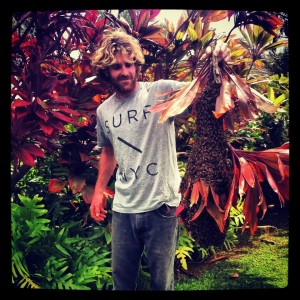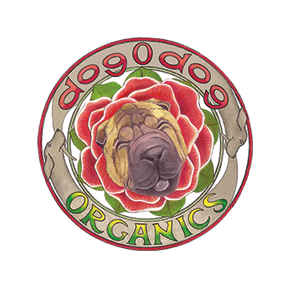Trouble and Hope in the Land of (Almond) Milk and Honey
 Matsuo Basho – a famous Japanese poet of the 17th century said in his “Record of a Travel-Worn Satchel” that “all who have achieved real excellence in any art possess one thing in common, that is, a mind to obey nature, to be one with nature, throughout the four seasons of the year”.
Matsuo Basho – a famous Japanese poet of the 17th century said in his “Record of a Travel-Worn Satchel” that “all who have achieved real excellence in any art possess one thing in common, that is, a mind to obey nature, to be one with nature, throughout the four seasons of the year”.
One such “artist” was Rachel Carson a marine biologist, conservationist and author of the book “Silent Spring” who’s work brought attention to the environmental problems that she believed were caused by synthetic pesticides in the early 1960’s and was then ridiculed by the chemical companies of that time. She is credited with advancing the environmental movement that led to the banning of DDT and other pesticides, and inspiring the grass-root movement that helped jumpstart the US Environmental Protection Agency.
Fast forward to today where globally we are still killing ecosystems from every possible angle with herbicides, pesticides and insecticides. The latest is the massive global honeybee die-off. This can have a devastating impact on our food security since it is estimated that honeybees are responsible for pollinating over 90 food crops worldwide. Scientists studying the massive global bee die-off have unearthed a slew of evidence on the devastation across the food chain caused by the most widely used pesticide on earth – “neonicotinoid” derived from the tobacco plant.
In addition to pesticides, everything from intensive and monoculture farming (farming one type of crop over large areas of land) pests, weather, the use of insecticides and herbicides, GMOs and GE food crops poisoned systemically, and large commercial bee businesses that feed their hive with GMO corn-syrup or sugar, use chemicals in the hives and truck thousands of hives around the country following monoculture seasonal crops – these are all stresses contributing to the killing off of honeybees. The European Food Safety Authority imposed a two year ban on neonicotinoids in which studies have shown are the largest contributor to honeybees with “Colony Collapse Disorder”.
Over the last six years, with a third of all honeybees vanishing each winter and over 40% this past year – beekeepers are saying that we are now on the brink of not being able to pollinate all our food crops. The United States has yet to impose any bans here but hopefully with all the information coming out about this serious problem – our elected officials will do the right thing and follow suit. Studies also show that once neonicotinoids enter the water supply they wipe out dragonflies, snails and other waterborne life and the few remaining species that survive are left so toxic that they kill the birds that eat them.
Not unlike the turn of last century’s Arts and Crafts Movement which was a cultural backlash against the Industrial Revolution – this new century has brought us a new wave of environmentally conscience small and organic farmers who are working in collective ways to save our food sources and ecosystems.
In speaking with Oliver Cohen – artisan and bee whisperer of Aloha HoneyBee in Kauai, Hawaii – he stated that most of these big commerical bee companies are “re-queening” every year with the same genetic stock in their breeding which can make the colony weak in addition to the other stresses mentioned above.
Oliver (pictured above holding a honeybee swarm) is lucky that he lives in a part of the world where there are various types of flowers and crops year round that help keep hives healthy and thriving. Being a self-proclaimed student of American agriculture, history and the environment, and is “always searching for the truth” – Oliver started his adventure with honeybees with just one call about a hive on his neighbor’s property in Kauai that needed removal. True to his nature, Oliver carefully removed the hive and brought it back to his property to tend to it and Aloha HoneyBee was born. He subsequently contacted local pest control, tree trimmers and landscapers in his area to let them know that he would be happy to take away any hives that are on their client’s property that they wanted removed. He has collected over 40 hives in a little over a year and had he not – he said that last summer at least 30 hives would have been destroyed.
Oliver boasts that what makes his colonies healthy besides the fact that he doesn’t use any chemical or treatments for pests, and follows strict organic principals of beekeeping – that his bees are feral in that they are of different genetics which makes them less prone to being wiped out by one type of disease or pests. Aloha HoneyBee’s honey is raw and organic – never heated and only lightly filtered. Oliver is in the process of designing his label and packaging, and plans to sell it in Hawaii but I am hoping for his success to be great so that I can buy it stateside.
During my conversation with Oliver about the plight of the honeybees, the subject of the American almond growers came up as they also have been hit hard over the last few years because of the problem with not enough honeybees to pollinate almond trees in California’s 400 mile long Central Valley where just about all domestic almonds are grown.
I am a major fan of nuts, particularly almonds, and everyday i eat a large handful of organic raw almonds that i soak overnight in lemon water. About a year or so ago, I came to learn from my friend and nutritional guru Lois Gore that the “raw organic almonds” that i was buying in the grocery store were in fact not raw but pasteurized. In 2007, a law mandated pasteurization for all US almonds after outbreaks of salmonella bacteria were traced to almonds in 2001 and 2004. This forced the pasteurization of most domestic almonds by using either a steam treatment or fumigation with toxic propylene oxide PPO.
So be very careful to read all the label information when buying almonds and steer clear of any PPOs (even though some may not be labeled as such)! Unfortunately, both these processes tend to kill the “live” quality of almonds but there is a way around buying truly raw almonds that are not pasteurized. You can find them on the internet and order them from abroad or buy bulk quantities directly from some US growers. I highly recommend the organic truly raw almonds from Briden Wilson Farm in Arbuckle, Ca. or Bremner Farms in Chico, CA.
For many health-conscientious people, almond milk is becoming a replacement choice for hormone-heavy dairy milk. Today’s cows produce double the amount of milk they did just 40 years ago and that’s because of a GE synthetic hormone called “recombinant bovine somatotropin” or rBST. This synthetic hormone is banned in many countries because it is linked to prostrate, breast and colon cancers. However, it is still legal here, although many dairies are being pressured to abandon it. It is important to try to buy organic milk whenever possible or try almond milk as a replacement.
My friend Lois who makes her own organic almond milk, discovered “easy-how-to” videos on YouTube. She made me a two page print out of easy step-by-step instructions to make home-made almond milk, and I will be happy to share and send you a copy if you are interested.
In closing, I urge everyone not to use any chemicals on your lawn and in your gardens, and if you find a beehive on your property – please contact a local beekeeper for safe removal… just make sure whoever removes it does not plan to destroy it. And please support your small, local and organic farmers and growers this summer!
THINK GLOBAL / ACT LOCAL
TIPS:
-For more information about the plight of the honeybees visit:
-To see more photos of Oliver Cohen and Aloha HoneyBee go to his facebook page: AlohaHoneyBee
-For more information about the pasteurization of almonds visit:
http://foodidentitytheft.com/trying-to-avoid-almonds-that-are-gassed-heres-a-little-guide/
-For more information about the health benefits of almond milk visit:
http://www.gnet.org/almond-milk-benefits/
-To order organically grown truly raw almonds contact Briden Wilson Farms:
or Bremner Farms: http://organicalmondsraw.com
-dogOdog Organics 100% Organic Snack-Treat-Enjoy Biscuits are made with Certified USDA Organic Honey. Play Safe, Treat Well and Have Fun! http://www.dogOdogOrganics.com
Until next week…
Peace and Love, dogOdog
 dogOdog.org
dogOdog.org

